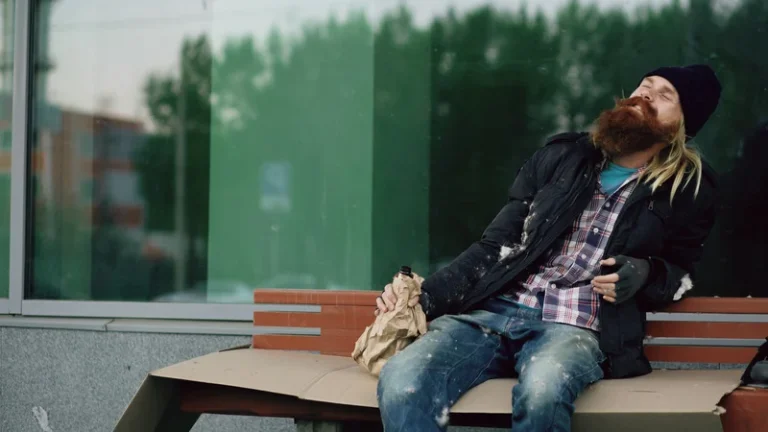
Imagine painting to the rhythm of a favorite song or creating a visual representation of a meaningful lyric – these exercises can unlock profound insights and emotional release. Additionally, art-making allows for non-verbal expression, helping individuals bypass verbal defenses and connect more directly with their emotions. The act of creating art requires focused attention, naturally directing thoughts away from intrusive ideas and towards the creative process. Moreover, art therapy encourages the acceptance of imperfection, embracing the creative process and any “mistakes,” which aligns =https://ecosoberhouse.com/ with mindfulness principles of non-judgment.
Explore Art

If you choose to participate with a good attitude and open mind, you’ll get something out of it. The group ends with the opportunity for participants to share what they created and why. For a recent project, participants created greeting cards to represent a non-material gift they would like art therapy for addiction to give themselves. Participants were also encouraged to write a note on the inside to themselves about the gift and why they deserved it. The process may also include reflecting on or interpreting the art and discussing it with others.
Support
Art therapy is a holistic treatment that provides the tools to cope with triggers like anger and loneliness. It teaches you how to overcome emotional roadblocks and express yourself when communicating with others. BetterHelp can connect you to an addiction and mental health counselor.
- The sedation drugs for the unbearable anxiety and motivation to restart are essential first.
- In 1945, Hill wrote a book on art therapy called Art Versus Illness.
- The practice provides a creative outlet for people to express their thoughts, feelings, and experiences through various art forms.
Understanding Your Needs

Give them a moment to reflect on what activities, people, or things help them feel good. These can be as simple as notes on scraps of paper that mention goals the person wants to achieve or affirmations that evoke positive emotions. Art therapy is a treatment for addiction where those recovering use creative art-making to express feelings and thoughts that are hard to put into words. This therapy allows them to explore and address issues related to their addiction. Arts and health invite us as human beings to reconnect with our artistic roots and our creative brains.

As technology continues to evolve, so too does the field of art therapy. Digital art and photography projects have opened up new avenues for modern expression in addiction recovery. These Substance abuse mediums can be particularly appealing to younger individuals or those who feel intimidated by traditional art materials. From digital collages to photo essays documenting their recovery journey, these projects offer a contemporary twist on classic art therapy techniques.
- If you are considering a career in art therapy, it’s worth noting that the field is expected to grow.
- As individuals progress in their recovery journey, art therapy provides an ongoing tool for self-expression, relaxation and maintaining emotional balance.
- In the journey of addiction recovery, traditional treatment methods like counseling, therapy, and medication are often at the forefront.
Art therapy can be used to support treatment for a wide range of physical and mental health conditions. It has been linked to benefits including improved self-awareness, social connection and emotional regulation, while lowering levels of distress, anxiety and even pain scores. Focus on the creative process instead of worrying about the end result.

They provide additional tools for self-expression, relaxation, and personal growth throughout the recovery journey. I know it’s not for everyone, but everyone has an expressive need. It may or may not be visual arts and it might be other areas where aspects of yourself come out, and this outlet becomes increasingly important as we age. The more you focus on livelihood or jobs and suppress these unique self-aspects, the greater are our struggles in later life to be self-regulated and emotionally happy. There are opportunities to expand art therapy services in a range of health-care settings. Doing so would enable greater access to art therapy for people with a variety of physical and mental health conditions.
Stress Reduction and Relaxation

By using art, individuals have a tool for recovery and can experience personal growth and self-discovery. Many creative activities encourage mindfulness—being fully present in the moment. This immersion in the present helps alleviate rumination, which is often linked to anxiety and depression. Mindfulness-based art activities are increasingly used to manage mental health by grounding individuals in sensory experience and creativity. When we create a space that values creative expression, people feel free to use their imagination. They can share their feelings and process their experiences through art.
Find an Art Therapist
The concept of this project is to encourage them to imagine the potential for transformation. The task is to create three self-portraits using any materials they like, such as drawing, painting, or a collage. The three images will become part of a mural that depicts the patient’s recovery process. The burgeoning research showing the benefits of art therapy for both physical and especially mental health highlights the value of creative and innovative approaches to treatment in health care. In an art therapy session, individuals can express and process their thoughts and feelings through art.
- I was unwell as a child and used drawing to entertain myself and communicate with others.
- Dr. Wakim co-founded and served as the CEO of Transformations leading to a successful merger with Shore Capital in May 2021.
- The therapeutic benefits of nature combined with creative expression can be particularly powerful for those in recovery, offering a sense of peace and perspective.
- Art therapy can be used to treat a wide range of mental disorders and psychological distress.
Freedom to Focus on Patient Care
- As stated by Moon, 2010, ‘Art Therapy and Self-Awareness in Addiction Recovery,’ art therapy fosters introspection and understanding of personal triggers and behaviors.
- The art therapist can also offer some general prompts, such as “Are there moments that inspire happiness?
- BetterHelp can connect you to an addiction and mental health counselor.
- However, the elimination of restrictive practices is a major aim of mental health services in Australia and internationally.
- Studies are often small and inconclusive, so further research is needed to explore how and when art therapy may be most beneficial.
- This helps you find personal insight and work through your feelings.
This approach can break down barriers and facilitate deeper sharing among members. Whether it’s creating recovery vision boards or engaging in collaborative art projects, these activities can enhance the group dynamic and provide new avenues for personal growth. Online art therapy platforms and mobile applications enable remote participation, benefiting those with mobility issues or in remote areas.
